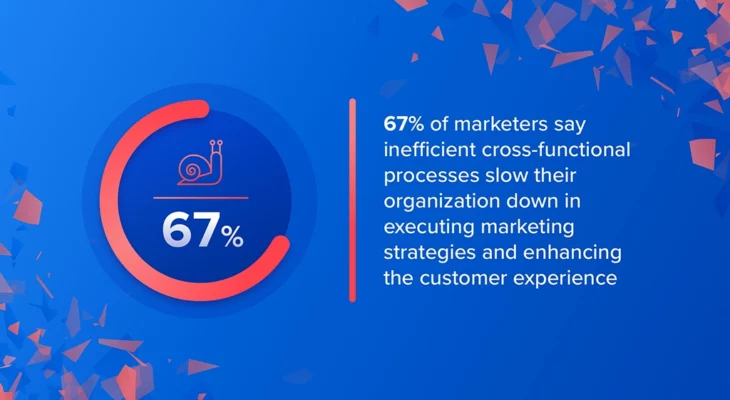In our most recent study, Marketer vs. Martech, we surveyed hundreds of marketers about their tech, goals, and the reality of where their businesses stand. Throughout the process, one thing became abundantly clear: most marketers have to fight the tech they’ve been given to get their job done. Those who have seen success with their tech have two things in common — unified data and AI-powered marketing tools to exceed their goals and remain healthy in 2020.
Marketer vs. Martech: The Struggle for Success In 2020

OUT WITH THE OLD AND IN WITH THE NEW
n the coming year, more marketers will find themselves at an intersection between the tools of the past — like ESPs, CRMs, etc. — and the tools of the future like our Customer Data Activation Platform. And while this changing of the guards is nothing new to marketers and business people, it does catalyze the urgency of our selection processes. Not to mention, with digital transformation, our decision and buying process has sped up significantly which means marketers have to choose their tools fast to stay ahead.
Other old traditions being thrown out in 2020? Disconnected teams and departments will soon become a thing of the past. These structures inhibit teams from working collectively to improve customer experiences and can leave the overall goals of the business feeling disjointed. As we all become virtual meeting pros teams from across the world and from different parts of a business can come together more easily than ever before. New platforms like our CDAP allow marketers to more easily collaborate with teammates and coworkers — and everyone operates off of the same customer data. 2020 has raised the stakes for every business and as consumers become more conscious of where they spend their money it’s important that your team, and your customer data, is in alignment so you can provide a seamless and exceptional customer experience.
YOUR DATA-DRIVEN STRATEGIES MAY BE BROKEN
While there are many structural problems within organizations that can lead to sub-par customer experiences, in reality the biggest culprit is how we use our data. And more specifically, how the martech marketers use interprets and uses that data. Some platforms even leave marketers with an inability to use the entirety of their data. Each platform collects and analyzes data in its own way, has its own level of sophistication, its own specific functionalities, and may or may not have a foundation that was built for scale.
Additionally, different teams and subsets often use completely different platforms which further complicates the situation. For example, approximately 1/3rd of marketers claim teams being too incentivized to improve their own channels rather than cross-channel capabilities.
From here these data issues develop into huge problems for businesses. Over 4 in 5 marketers report that technology challenges between departments have caused problems in developing personalized customer experiences. Also, 67% of marketers say inefficient, cross-functional processes slow their organization down in executing marketing strategies and enhancing the customer experience. These problems seem to feed off of one-another and snowball until marketing teams break down altogether. So, what’s the way out of this data purgatory? AI.
THE AI-POWERED TEAM OF THE FUTURE IS HERE
The teams crushing their goals in 2020 are the ones who have been early adopters of AI-powered martech. These teams are using AI to get a handle on their disarrayed data — 59% of marketers exceeded revenue goals by 30%+ are storing data on an integrated platform.
So, before building any marketing journeys, it’s important to have a unified source of data, like Blueshift’s single customer views, that will then inform any future comms.
The teams that crush their goals power every marketing message their customers receive with AI. This martech aides along every step of the journey creation process, from building high-value segments using predictive segmentation, to scaling personalization and triggered messaging that reaches customers as the optimal time for conversion. This not only takes the guesswork out of marketing but also sees fantastic ROI — 81% of marketers using AI/machine-based learning martech for personalization report to exceed revenue goals by over 30%.
Most importantly, these teams succeed because they’ve taken the time to truly audit their stacks and find best-of-breed technologies to power their marketing. This should be a comprehensive evaluation project that every member of your team is involved in — from CMO to the end-user. It’s important that everyone who has a stake in marketing feels confident in and supported by the technology you select to power great customer experiences.
Ready to set your team up for success in 2020? Download our full Marketer vs. Martech study for more information on why the right martech is essential to your success, and reach out to the Blueshift team to see how we’ve helped brands succeed.


